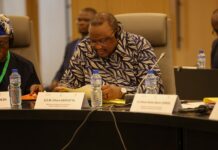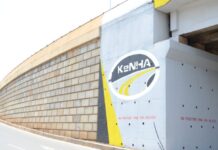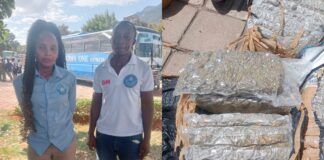The government’s plan to import 500,000 metric tonnes of duty-free milled white rice has sparked a political storm, with opposition leaders and even some Kenya Kwanza Alliance figures condemning the move as a threat to local agriculture and a conduit for grand corruption.
At the centre of the controversy is the National Treasury’s directive to allow tax-free rice imports until the end of 2025, a decision the opposition claims was designed to enrich cartels at the expense of struggling Kenyan farmers.
Opposition figures, including Wiper Party leader Kalonzo Musyoka, Narc Kenya’s Martha Karua, and DAP-K’s Eugene Wamalwa, have vehemently opposed the policy, warning that it will cripple domestic rice producers and expose consumers to unscrupulous market practices.
“This is a criminal regime that not only inflicts physical violence on its own people and defunds essential services like education, but now seeks to sabotage our farmers through reckless importation,” said Karua.
Kalonzo echoed the sentiment, accusing President William Ruto’s administration of serving elite interests. “President Ruto, you are living on borrowed time. We are telling you now, one term is a reality,” he declared at a rally, adding that the rice deal is part of a broader pattern of economic betrayal.
The backlash is not limited to opposition leaders. Kirinyaga Governor Anne Waiguru and Maara MP Joseph Mugweru, both aligned with the ruling coalition, also voiced objections, urging the government to prioritize local farmers. “Promote our farmers who have excess rice in their farms,” said Waiguru, while Mugweru urged the state to “buy from farmers, not foreign traders.”
Agriculture Cabinet Secretary Mutahi Kagwe attempted to calm fears during a visit to the Kenya School of Agriculture in Nyeri County. He assured rice growers that no imported rice will hit the market before the government buys all locally available stock.
“We are committed to protecting our farmers. All existing rice from farmers will be purchased first. The imports are meant to fill a genuine shortfall, not to replace local produce,” said Kagwe.
The Agriculture and Food Authority (AFA) defended the importation, warning of severe food insecurity if additional rice isn’t brought in to address current shortages.
“Failure to import rice under the current shortfall would result in acute scarcity or a spike in prices, not just for rice, but also for maize flour and wheat products. This would worsen the cost of living for millions,” read a statement by AFA.
Meanwhile, Wamalwa claimed that a separate scandal is brewing involving 25,000 metric tonnes of imported sugar allegedly being rerouted to a Western Kenya factory for repackaging and sale, raising public health concerns. “The three-month closure of sugar mills was part of a wider plan to create artificial shortage, enabling secret importation of unfit sugar,” he alleged.
Responding to the sugar claims, the Kenya Bureau of Standards (KEBS) issued a statement on July 31 denying the presence of contaminated sugar in the market.
“Our attention has been drawn to statements alleging that unfit sugar is circulating in Kenya. KEBS would like to dispel these claims and affirm that all sugar, whether locally produced or imported, undergoes rigorous testing and certification before it reaches the market,” the agency said.
As the importation debate intensifies, political temperatures continue to rise, with observers predicting the issue could become a flashpoint ahead of the 2027 general elections. Local farmers, particularly in Kirinyaga and Mwea, Kenya’s key rice-producing zones, have vowed to resist the plan unless the government guarantees full market access for their harvests.
Written By Rodney Mbua



















